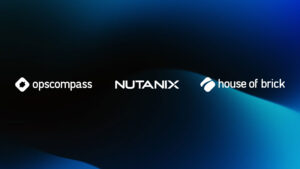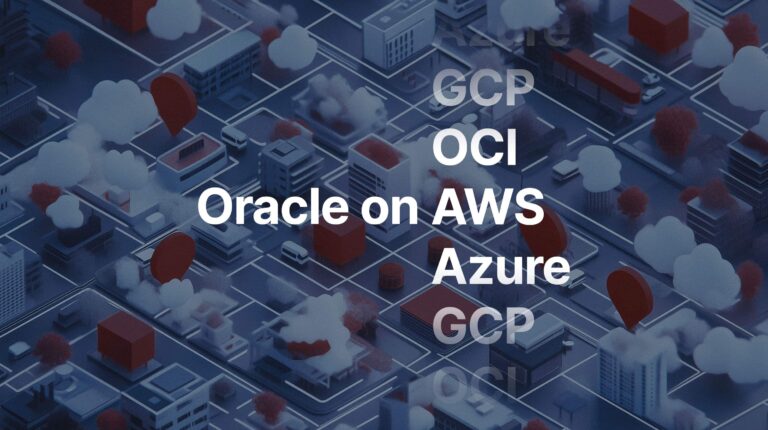Dave Welch (@OraVBCA), CTO and Chief Evangelist
House of Brick has become the industry’s lightning rod on the topic of licensing Oracle technology running on VMware. As a compliment to our contract instruction over the years, we have pointed out the complete lack in case law history of any legal action by Oracle against customers relative to this topic. While that is still true, I am pleased to inform you of Mars Incorporated, vs. Oracle Corporation, et al. This action was filed on October 23, 2015 in the Superior Court of California, County of San Francisco. [1]
Although I am not an attorney, many of my professional days involve guiding and collaborating with attorneys. To my knowledge, and that of various legal teams, this is the first action expressly concerning Oracle licensing on VMware brought by any party in any jurisdiction.
Mars’ Declaratory Judgment Action
Mars brought the declaratory judgment action petitioning the court:
- To order Oracle to limit its audit activities in accordance with the audit clause in its 1993 Software License and Services Agreement with Mars.
- To bar Oracle from following through on its threat to terminate Mars’ license and Software Update License and Support effective October 26, 2015 should Mars not comply with various demands Oracle had been making during the course of the audit.
Even though neither of those pleas directly states “Oracle on vSphere licensing,” Mars’ Oracle on VMware environment was one of two issues behind the plea to limit Oracle’s audit activities, the other being the definition of “user” in Oracle Agile software licensing.
Of the 23 documents available for view/download in the case’s Register of Actions, these five will suffice for your review:
- Complaint – October 23, 2015
- Plaintiff’s memorandum and points of authorities – October 26, 2015
- Declaration of Eloise Backer – October 26, 2015
- Withdrawal of motion for preliminary injunction – November 24, 2015
- Plaintiff’s motion for dismissal with prejudice – December 16, 2015
How Did it End?
Mars filed a motion December 16, 2015 for the court to dismiss the action with prejudice. This means that Mars may not bring the same action again against the same defendant in the same court.
It would appear that the proceeding was brought to a close prior to any of the parties actually coming before a judge. In particular, I suggest that a proper reading of the November 24, 2015 joint motion by the plaintiff and defendant for withdrawal of motion for preliminary injunction can impute much having to do with how things came out. With that, both parties in effect said, “Never mind, Your Honor. There won’t be any Oracle letter canceling license and/or Software Update License and Support for the duration of the proceeding.”
As a checkpoint to that opinion, you might consider asking your attorney or legal team:
- What are the odds that this filing ended with an out of court settlement entirely in the plaintiff’s favor? The terms and very existence of such an agreement would customarily be covered by a non-disclosure agreement at the insistence of the defendant.
- What things can be included in Mars’ request that the court award it “all reasonable costs allowed by law, including staff time, court costs, attorney’s fees, experts’ fees, and other related expenses; and that Mars be awarded costs of suit and such other and further relief as the Court deems just and proper?”
The Bad in the Mars Filing
I lead with the negative side of the filing because I want to get it out of the way. The one thing about this action that makes me cringe is that any Oracle customer under audit might be on record as having provided Oracle 233,089 pages of documents in support of an audit. Let’s make the assumption that at least half of that had to do with the VMware issue and not the definition of an Agile user.
I claim that even the type of disclosure alluded to by the filing would be unnecessary–let alone the page count–for an Oracle audit customer running Oracle on vSphere to efficiently complete the audit in enjoyment of all its contractual rights. That means no negotiation that could lead to a weakening of or payment for the licensee’s existing contractual rights. Less important is that a customer’s overhead in providing all those pages would very likely directly violate Oracle’s contractual obligation to not unreasonably interfere with the licensee’s normal business operations.
The Mars filing documents the audit concessions that Mars made in good faith in the effort, with full understanding that the concessions were not contractually required. I think the complaint implies, that in hindsight, Mars may not have made those concessions and/or may have come to recognize that making those concessions wouldn’t persuade Oracle to be reasonable.
The Good in the Mars Filing
Such a filing brings all manner of correspondence and documentation of individuals’ statements into the public record. Those documents would have previously been shielded by the Oracle license agreement’s non-disclosure clause.
Oracle Audit Notice
We now have an Oracle audit notice in the public domain (Declaration of Eloise Backer – Exhibit 1). Or is it really an audit notice? The September 15, 2014 notice doesn’t use the word “audit.” Although my layman’s guess is that it’s innocuous, we should be calling an audit an audit. I’m betting Oracle LMS is done issuing “license review” notices.
Oracle’s “review” notice itself asserts plenty of Oracle (audit) privileges that indeed have no contractual merit and therefore are not Oracle’s privilege to demand. However, those specifics are beyond the scope of this post.
Oracle’s Attempt to Redefine “Installed”
Oracle asserted:
“Oracle programs are installed on any processors where the programs are available for use. Third-party VMware technology specifically is designed for the purpose of allowing live migration of programs to all processors across the entire environment.” (Declaration of Eloise Backer, exhibit 11—September 25, 2015 letter to Khaled Rabbani, Mars General Counsel, from Chad Russell, Oracle Corporate Counsel.)
Mars claims Russell’s September 25, 2015 letter was the first time Mars had heard Oracle advance the argument. It should also come as no surprise that Mars apparently had not been previously exposed to the argument from any source. Try entering the following in a web search: [Oracle VMware “programs are available for use”]. Search with a custom date filter with the end date being the day before this post.
Certainly Oracle’s argument reads well. However, it is logically flawed and in contrast with multiple contractual provisions, only some of which Mars calls out in its filing and exhibits.
If the definition Oracle advanced to Mars enjoys contractual merit, what motive might Oracle have to have been so quiet about the idea? Why not bring out the definition using those words or anything similar in presentations and documentation, or in a courtroom for that matter? As the definition has no merit, inserting it into later versions of Oracle’s contract would require edits to other conflicting contract provisions. Take a licensee that had the same argument with Oracle, lost the argument and paid the money, and then became aware of the change in a newer public-facing Oracle contract. How might that licensee react?
Notice that neither party mentions the non-germane Oracle Partitioning Policy anywhere in the proceeding.
Notice also that Mars chooses not to take Oracle’s bait by responding to its assertion that liability on Mars’ part is implied by VMware technology’s design that allows for live migration. You should also try finding Oracle’s promotion of that argument in the public square (again with the custom date range ending the day before this post). Think about a car that the manufacturer designs with the ability to go faster than the speed limit. How well does Oracle’s argument hold up? I could use other examples.
Oracle’s Demands Beyond Its Contractual Audit Rights
The Mars filing documents various demands by Oracle beyond the audit rights granted by the contract. After you have read through Mars’ recitation of those demands, I’m wondering if any of them look familiar to those of you who have been, or are currently, under audit by Oracle.
Oracle’s Moving of the Goal Posts
The Mars filing documents instances of what we at House of Brick call moving the goal posts. Again, after you have read through Mars’ list of those, I’m wondering if any of them look familiar to any of you.
The Choice
I suggest that on October 23, 2015, Oracle faced two choices. Either:
- Let the Mars filing sit in the persistent public record with Oracle having no opportunity to amend the record with any rebuttal; or
- Watch Oracle’s VMware-related arguments picked apart and then lose the case, with the entire proceeding appended to the persistent public record, eclipsing the filing’s original content.
I’m sorry that it appears Oracle opted not to appear in court. I’m also not the least bit surprised. In my opinion, Oracle appears interested in trying to see if it can get any more money out of any of its Oracle on VMware customers. It also appears to want to do that without a court’s evaluation.
Are 100% Of Oracle on VMware Disagreements Settled Out of Court?
The “Sensible” Approach?
Andy Ridge reproduced my September 17, 2014 blog post on LinkedIn. Former LMS operative Richard Spithoven included this in his comment on the post:
“In the end the IP owner determined the rights under which an end-user is allowed to make use of the software and the end-user does typically not have anything in its agreement which justifies for example to count virtual cores or anything else. Resulting in the fact that any dispute untill (sic) today has and will be (commercially) settled.”
Similarly, in LinkedIn’s ITAM Review forum, Martin Thompson has a thread titled “Defending Against Oracle’s Stance on vSphere.” The post is visible via Google cache to non-members of the forum. You can see the Google search summary of the article via this search string: [Oracle VMware licensing LinkedIn ITAM]. Thompson cautions against taking what I’m rephrasing as the gutsy approach in dealing with Oracle on VMware licensing. He accurately characterizes the gutsy approach as including among other things, that “Oracle has never taken anyone to court over it.” Rather, he advises licensees take what he calls the “sensible” approach in their interactions with Oracle Corporation on the issue.
I thought it appropriate to invite you to revisit those opinions in light of the Mars filing. How arrogant of any of us to ever have assumed to stand on our contractual privileges.
I believe that if Oracle had even a particle of contractual merit on its Oracle on VMware licensing assertions, Oracle would have had incentive around the 2007-2008 time frame (the beginning of the burgeoning Oracle on VMware market) to use a court case to send a clear message to the world that it would protect its intellectual property rights. That’s what I would have done, in preference to arguing the point one customer at a time as quietly as possible.
Consider the revenue Oracle would be putting at risk by not doing so. Based on the 2,000 database count disclosed in the filing, it would be reasonable for an Oracle licensing expert to conservatively estimate that Mars paid Oracle $100M for license and software update license and support for the three-year period 2013 through 2015. If we conservatively estimate that Oracle is half of Mars’ vCenter and Mars is running vSphere 5.1-5.5, then taking Oracle’s perspective, the renegade Mars would owe Oracle another $100M. Put whatever multiplier against it that you choose to account for the number of other Oracle on VMware licensees that should pay up. The only thing up for debate is the number of zeros behind that figure. With that kind of money at stake, how probable is it that Oracle (or any other software vendor for that matter) would take an entirely passive audit-based collections approach?
I also want you to consider Oracle’s 2010 lawsuit against third party software update and support provider Rimini Street. Oracle sued out of concern that Rimini Street was downloading software from Oracle under the contract’s backup copy provision but using the software for much more. Why would Oracle not have opted to settle with Rimini Street out of court? Quite simply, because Oracle had merit behind its claim against Rimini Street. (No one should be surprised that I’m thrilled that Oracle prevailed in that action.) Compare the money Oracle sought and the court’s actual award to Oracle, to the conservative estimate that Mars paid $100M to Oracle 2013-2015. Keep in mind that there are probably a lot of shops in the same situation Mars is. On the other hand, I would argue the Oracle vs. Rimini Street action was one of a kind.
Also, notice how long Oracle’s action against Rimini Street took from filing to court finding. Keeping the estimated Mars revenue to Oracle in mind, compare the durations of the two actions. Forget the fact that the Rimini Street unpleasantries involve an appeal under consideration and a counter-suit in progress. I think the comparison is most instructive as it relates to the probability that Mars vs. Oracle led quickly to an outcome very favorable for Mars.
The sincerely held theory that the world’s largest relational database vendor has settled 100% of its Oracle on VMware licensing disagreements out of court and gotten its way is a statistical impossibility. There are too many licensees that understand the license and insist on exercising all contractual rights. The percentage of licensees in that category continues to increase, while the Oracle on VMware community grows at a better than linear rate.
If You Have Already Negotiated with Oracle to Conclude an Audit
If you are reading this through the experience of an Oracle on VMware customer that has been through an audit with Oracle, do you feel you have been induced into a negotiated agreement with Oracle as a result of any Oracle representations documented in the Mars action? Such would appear to be the intent with Oracle’s Declaration of Non-Migration that got a mention in a presenter’s VMworld 2015 Barcelona deck. Upon signing that amendment, the Oracle licensee cedes rights already enjoyed in the contract. Similar to Oracle’s attempt to re-define “installed,” it would appear the Declaration of Non-Migration amendment wasn’t web-searchable prior to the presenter’s slides at that show. If such an amendment really does defend the intellectual property rights of the world’s largest relational database licensor, I ask you again why Oracle would have promoted it so completely in the shadows. If you have executed such an amendment, you may want to confer with legal counsel about remedies that may be available to you.
Agile “User” Definition
Although the disagreement over the definition of an Oracle Agile “user” is not central to this post, don’t miss the Microsoft Word licensing metaphor in the complaint (page 11 line 18). The action’s Agile licensed user definition issue is absolutely required reading for any licensees of Agile, Oracle Business Intelligence, or other Oracle business intelligence tools.
Introductory Materials for Those New to House of Brick
“Straight Talk on Oracle on VMware Licensing.” — March 19, 2015 DBTA webcast. If you only have time for the cliff notes version, then read the white paper behind this link, and take in the first 20 minutes of the recording and deck.
“Understanding Oracle Certification, Support and Licensing for VMware Environments” – March 2015 white paper published by VMware.
“Oracle Licensing: Soft Partitioning on VMware is Your Contractual Right” – September 17, 2014 post.
“Managing Oracle Licensing in a Shared Storage Environment” – October 3, 2014 post.
“Review of Gartner’s Nov. 2014 Virtualization’s an Oracle Audit Risk Paper” – July 12, 2015 post.
“Review of the Campaign for Clear Licensing’s Report on Oracle Licensing” – October 2, 2015 post.
Footnotes:
[1] Accessing the Filing
Access the filing as follows. Be aware that documents may only be downloaded from the Register of Actions via a Flash-enabled browser.
By case number:
- http://www.sfsuperiorcourt.org
- Click on Online Services
- Click on Case Number Query
- Complete the anti-robot test
- Enter case number cgc15548606 and click Submit
By name search (as of the time of this writing):
- http://www.sfsuperiorcourt.org
- Click on Online Services
- Click on Name Search Query
- Complete the anti-robot test
- Enter “Oracle”
- Select the first entry “Oracle America, Inc.”
- Mars vs. Oracle filed October 23, 2015 is the first case listed
Join the conversation by adding a comment below or on Twitter using #marsvsoracle.







